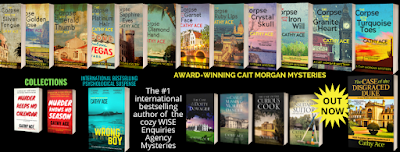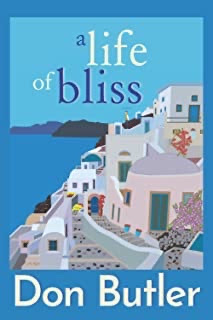In Murder, She Wrote, Jessica Fletcher pecked out mysteries on an old Royal typewriter in 1984 and ended up tapping them out on her laptop by 1996. What changes in technology had the greatest impact on you in your writing career?
Brenda starting off the week.
I remember pecking out essays on my old Olivetti typewriter at university. I had a self-imposed limit of three errors before I'd retype an entire page. I used white eraser tape that you slip in over the wrong letter and then hit the same key again. The theory was that the wrong letter would be 'erased' and then you could type the correct letter over top. The problem was that you could always see the indent of the mistake, and could tell that a new letter had been typed over the old. Thus, the need to retype the entire page when it got too messy.
Additionally, if while drafting the essay, I forgot to add an argument or an idea at a logical point, I'd have to sometimes retype a number of pages ... there was no saving work, so only one copy. One time, I left my finished essay in my bag outside the cafeteria (we weren't allowed to bring bags inside), and someone took my work. I had to retype the entire essay from memory.
So, where I'm heading with this post is to say that the invention of computers with the Word software program has been the biggest change in technology to impact my writing. Hands down. I couldn't imagine going back to the days of the typewriter.
Spellchecker, cut and paste, delete, format, track changes .... what's not to love?
When I got my first government job some twenty plus years ago, I had to ask my supervisor how to turn on the computer. I remember asking a coworker how to bold and underline. The Department used WordPerfect at the time, and I was sent on courses -- the instruction was broken up into three levels and they made certain I took every one. Some of the material went beyond what I would ever need to use and I immediately forgot it, much like other information in my life (like changing a tire or using the four remotes my husband has somehow accumulated for our television.)
Meanwhile, the Help Desk technicians back at my first government job got used to my calls and began greeting me by my first name before I introduced myself. Those were the days they'd make trips to your desk to sort out a problem. One memorable morning I managed to delete an entire drive and one of the techs spent his lunch hour finding and reinstalling it. (My photo was probably used as a dartboard wherever it was they were housed in the building.)
Back in the olden days, even our home computer caused problems on a regular basis. We'd call the helpline (located in another country) and spend a good part of the day working with the tech 'expert' over the phone fixing our issue, usually having misplaced a password or two and frustrated out of our minds. I can't recall when this all stopped, but somewhere along the line, the software programs improved and operational problems disappeared for the most part. The few issues that have arisen get resolved by taking the hard drive in to my nearby Staples.
My first manuscripts were mailed as hard copies to the publisher and they were returned to me with corrections and comments on the printed pages. Now, everything is done electronically with speed and ease. I'd hate to think how much we'd spend in postage now if we were still relying on hard copies!
I'm thankful every day that I had the opportunity early on to join the computer age, and that I managed to struggle through all the growing pains with all those patient Help Desk technicians who prevented me from destroying the network or heaving my computer out the window. It's exciting to imagine where the technology will go next, and all the doors that will open for writers as a result.
Website: www.brendachapman.ca
Instagram & Facebook: BrendaChapmanAuthor
Twitter: brendaAchapman


.jpg)


Freedom.jpg)












